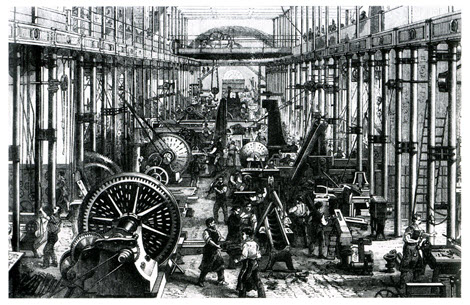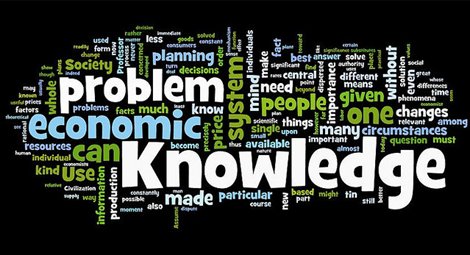
In other words, you're using an outdated definition of what it means to be productive:
Productivity
Noun
[obsolete]
1. The process of producing more output with less input: "working harder."
[modern]
2. The art of accomplishing more with less time and less energy, achieved by learning new ways of doing things.
Which one would you rather use?
Getting re-defined
Definitions change over time. In the industrial age, the focus was on the machines, not the people using them. The company with the machines that could produce the most output in the shortest time with the least energy -- all else being equal, that company was the winner.
Even today, many companies think this way. I can't count how many times in my consulting career I've heard someone (typically an executive) say, "If only we had System X, all our problems would be solved!"
We can't think this way anymore. Success today depends much more on people than on technology.
Machines are only as valuable as the people using them
Your value as part of your company is not just what you do, but how you do it. Your value isn't just what you produce, but how you enable others to produce.
To improve how you do things, enable your coworkers, and increase your value, you need three things:
- Knowledge
- Method
- Technology
Through my years of research in productivity and knowledge management, these are the factors that I discovered are critical to creating value.
Knowledge
Simply put, this is not only what you know and who you know, but how you take advantage of it.

Here's a simple example: when you need to learn a new process at work, do you hack away at it yourself, or do you ask whether there's someone who already knows how to do it?
Another example: how you organize your knowledge. You have access to huge amounts of data -- but is it organized in a way that you can find what you need, when you need it?
Methodology
Most professionals I've worked with use a method like this:
- Scan email for anything urgent
- Work on those urgent things until A) another interruption pops up or B) they remember some other urgent thing they need to do
- Abandon the original task to work on the new one
- End up with a dozen open browser tabs, ten open documents, and twenty open emails, feeling drained and stressed and wondering what they were working on in the first place

I call this being driven by the latest and loudest.
Imagine yourself in that situation (maybe you don't have to imagine very hard). Think about taking a few hours to learn a new way of doing things -- it sounds impossible, doesn't it?
I've heard busy friends and coworkers say over and over again that they need to learn better time management -- but when I say, "I can teach you that," the usual response is, "No, I don't have time!"
Now you see one of the biggest problems with office productivity today: everyone's too busy and stressed to learn how to be less busy and stressed. Tasks build up without end, and all we can think about is how to dig through them faster, now how to decide which ones are truly important.
Technology
Technology will never solve our problems for us, but we can solve problems with it. It's just a matter of learning how.
_jpg/-file/Technology2%20(public%20domain).jpg)
Technology is only as valuable as the skill of the people using it. I've witnessed dozens of companies buy the latest, shiniest, cloudest, mobilest, socialest, hottest new solution, only to sit their people down with it and tell them to figure it out themselves.
The results are typically disastrous, or (at best) mediocre, with no real improvement over the system they had before.
You need to know how to use your tools to be valuable with them, and to do that, you need to take the time to learn.
It takes time to do things in less time
To be valuable, people need to learn how to think about their work and how to use their tools.

Better ways of thinking aren't hard to discover or learn: they just take time.
The new value of people
Your value as a worker, in your job and personal life, to yourself and your employer, depends on how well you use your knowledge, do your work, and use your systems. To put it mathematically:
Value = Knowledge x Methodology x Technology (V=KMT)
I spent years researching productivity and knowledge management, and this equation is what I came up with. My 35+ years of experience in consulting and coaching have shown that these three factors are crucial to creating individual value.
So -- would you rather be driven by the latest and loudest, or would you rather take the time to learn how to increase your value? Keep following this blog for more on V=KMT and other value-boosting topics.
Best wishes,
Eric
P.S. Join the conversation on Facebook and Twitter.
Image credits:
Images "Industrial" and "Technology" public domain with no attribution required.
"Knowledge" image by Purple Slog [CC BY 2.0 (http://creativecommons.org/licenses/by/2.0)], via Flickr.
"Brain" image by Allan Ajifo [CC BY 2.0 (http://creativecommons.org/licenses/by/2.0)], via Wikimedia Commons.
"Multitasking" image by Ryan Ritchie [CC BY-ND 2.0 (https://creativecommons.org/licenses/by-nd/2.0/)], via Flickr.







Discussion/Comments (0):
Discussion for this entry is now closed.